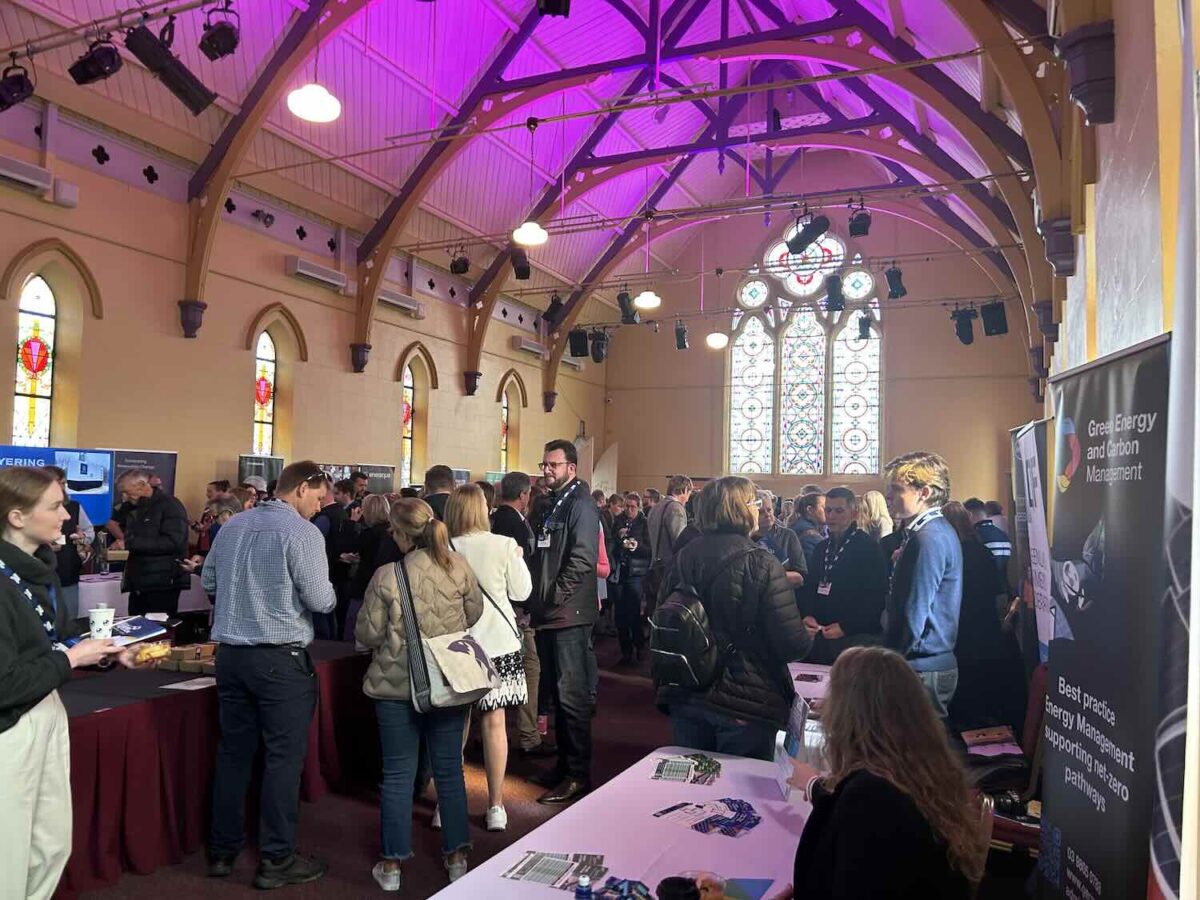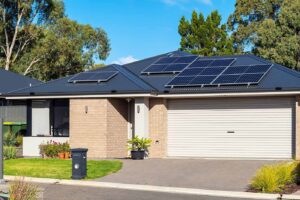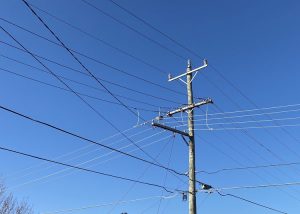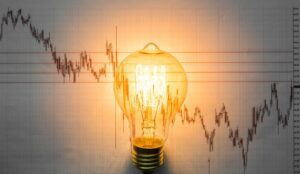As the Renewables in Agriculture conference wound up in Toowoomba on Thursday evening, there were two major themes that emerged.
The first is that each of the 350 attendees at the conference – in its fifth year, and its first year in Queensland, it was completely sold out for the first time – was there for the same reason: to get more out of renewables for famers and their communities.
The farmers working tirelessly to power their operations more sustainably – think cows among solar panels, piggery poo-fed bacteria farts converted into energy; as well as the energy and network company representatives, the community leaders, the handful of politicians.
All these people were there to listen, talk, ask and answer questions, to collaborate and do their bit to make the transition to renewables smoother for farmers and the regions.
There was no angst, no harsh words, no politicking, no angry placards, no name calling or fear mongering, no grandstanding, no empty platitudes.
Rather there was thoughtful discussion among a bunch of truly inspirational but ordinary people who are doing stuff – not least of all the conference’s lead organiser and NSW farmer Karin Stark – and a lot of RM Williams boots.
The second key take away is that there we are still a long way from where we need to be to make the shift to renewables a win win for the energy future and Australia’s regions – and it can get a bit frustrating for the farmers who are trying.
The farmers who have solar on one part of their property, but can’t use it on another part without first sending it through the grid and then paying to buy it back.
The farmers who are flaring their excess renewable biogas because they can’t share it with other farmers.
The farmers who are keen on hosting wind on their property, but are worried this will alienate others their community who have had bad experiences with developers, or who are inclined to believe the anti-wind rantings of certain National Party members.
Still, there are plenty of ideas on how these problems can be overcome – we just need to work together better. And there is no shortage of people, like the former independent MP for the federal seat of Indi, Cathy McGowan, who are not afraid to push for better for the regions.
“I’m here because I really care about my community,” McGowan, who these days chairs research outfit Agrifutures Australia, told the conference in the keynote address on Thursday morning.
“And while I can work in energy politics and I can work in research and development, and I understand federal politics, my fundamental driver is the future of my community. And the ability of my community to be there in 100 years time and to be better.”
McGowan says that her region in north-eastern Victoria, which takes in Beechworth, Yackandandah Barnawartha and Dederang, has experience two contrasting responses to the transition to renewables.
“On one hand, we have our little community of Yackandandah: 1000 people, 10km from where I live, and it’s a community that’s got its act together.
“They’ve set targets for being equal balance of renewable and grid by 2022. And they’ve done an absolutely amazing job of bringing the community together around becoming a renewable center … and there’s zilch conflict.
“Across the hill in the next valley there’s angst, there’s confusion. There’s politicisation. There’s enormous community disruption, people being nasty to each other. People not talking to each other, people resigning from the …CFA and the whole community has got big signs up saying no, no, no, and we don’t like you.
“So I’m in the middle of it. And as a community leader, I don’t like it. And I want it to stop.”
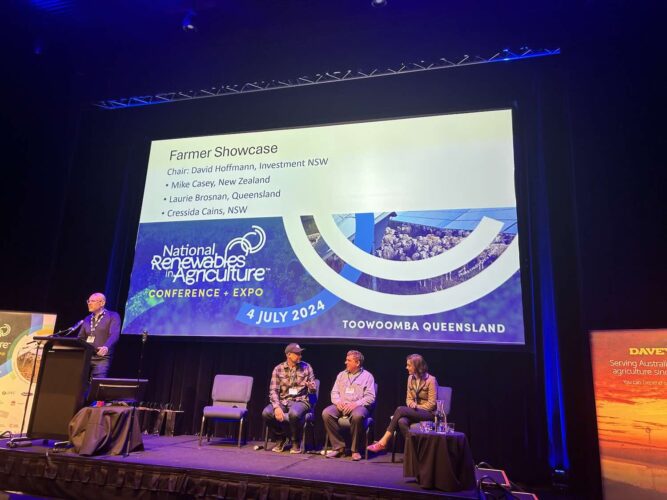
McGowan thinks a lot of the sort of change needed to address community division will have to come from within the communities themselves, but there’s also things that government can do and industry can do to help, too.
“What do I actually want? I want the realisation of the opportunities that renewable energy can give us.
“I want the possibilities of the benefit. I want the avoidance of the pitfalls. And absolutely, I want the growth of regional Australia.
“And I want it to be that when we get through this decarbonisation sector plan, that not only industry, governments and communities but rural and regional Australia is the better for it.”
What McGowan really wants is a National Rural policy – a blueprint for how Australia as a nation could benefit from its regions. It’s something she has been campaigning for for a long time, from both inside the Canberra tent and outside of it.
“In my community of Indi, we could have it better, we thought. and what a brave thing that was that a community could actually want something more for itself. More than local good, we wanted a national policy on rural and regional Australia.
“We wanted a national policy on rural and regional Australia. Now we haven’t got it yet, but we’ve done some really good work at it.
“We didn’t want to be better if it thoroughly divided the community. We didn’t want to be better if it didn’t actually make more …abundance. We didn’t want to work from a scarcity notion.
“The outcome was that the community got better. Instead of being a victim. They’ve become agents of their own future.
“Rural and regional Australia does not have to be a victim in this transition. We actually can be the beneficiaries,” McGowan told the conference.
“And if we are the beneficiaries, our families, our grandchildren, and the next generation will be the beneficiaries. And we’ve got that in our hands to do it.
“And let’s be really ambitious in our imagining. Because …there’s a huge amount of money invested in this – zillions of dollars, and they will go to those … most organised.
“If rural and regional Australia gets organised… is [can have] much better services designed for us. We want much, much better telecommunication, we want much better education, because there’s going to be 100,000 jobs come here. We want them out here.”
As for the politics and the division and angst in communities, McGowan says she has taken inspiration from Australia’s new governor general, Sam Mostyn, who was sworn in earlier this week.
“She said one of the things she really wants to do is encourage people to engage in civil society, to engage in debate, to engage in difference, to learn how to have those discussions and to do it with respect and kindness.
“I’m up for it. And I’m going to ask you in exactly the same way to be up for it, to be courageous, to be adventurous, and actually to do the work on this one,” McGowan said.
“I want to be part of this team, because the alternative to me is too horrible. The alternative is more of what I’ve experienced in my community in Dederang and I don’t want to see any more of that.
“The alternative is rural and regional and remote Australia becoming a bit of a victim to the chaos and confusion that already exists out there – to the lack of a pathway for decarbonisation.
“If we don’t somehow together, say ‘none of that, now, we’re not going to have that we’re better than this and we deserve better.’
“We don’t want to criticise, we don’t want to play politics about this because our communities are too precious for us to divide. But if we don’t do our job, that will be the default.”

